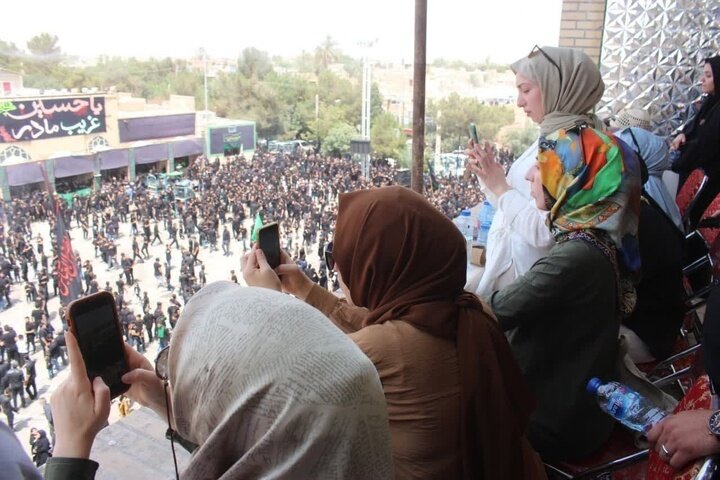Foreign travelers in Ardakan visit Ashura rituals

TEHRAN – On the Day of Ashura, some 70 foreign travelers attended Muharram mourning rituals during their visits to Ardakan city of Yazd province, central Iran.
During the religious ritual on Friday, thousands of locals commemorated the martyrdom anniversary of Imam Hussein (AS) and his loyal companions, slain in 680 CE at Karbala in modern-day Iraq.
“Over 70 travelers from Turkey, China, Denmark, and Russia attended the ritual held in Ardakan’s Kushk-e No Hussainiya,” Ardakan’s tourism chief said on Saturday.
The tourists were well introduced to the Muharram rituals observed by the people of Ardakan [on the Day of Ashura, when the sorrow reaches its climax], the official said.
According to available data, 415 foreign tourists from 16 countries participated in the Muharram mourning ceremonies of Yazd province last year. Those tourists were from Italy, Spain, Germany, France, Czech Republic, Turkey, Portugal, China, Hungary, Holland, Austria, Poland, Russia, Switzerland, Chile, and Croatia.
Yazd has long been a destination for domestic and foreign tourists who are willing to witness centuries-old mourning ceremonies held during the months of Muharram and Safar. Holidaymakers may attend mourning ceremonies, such as Nakhl-Gardani or Nakhl-Bardari, which is a symbolic representation of the Imam’s coffin, resembling an Imam’s funeral; Tazieh, a passionate play inspired by historical and religious narrations; and Sineh-Zani [beating the chest].
Muharram and the following month, Safar (which includes a commemoration of the aftermath of Karbala) are a period of lamentation for Muslims. War and fighting are prohibited during Muharram and festivities like weddings and birthdays are usually postponed to more appropriate days. People generally wear black out of respect or at least avoid wearing very bright colors.
They say the core meaning of Muharram is beyond such mere bereavement and commemoration of the past. Karbala was an actual and metaphorical venue where the Truth confronted the Lie, where justice spoke vibrant and audible in the face of prejudice, and where courage, passion, and devotion preceded attachment, worldliness, and obstinacy.
AFM
